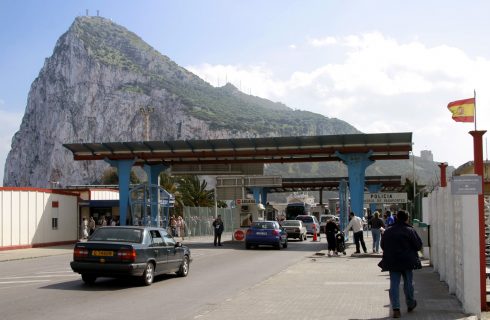SUNSHINE, Schengen and sovereignty. These three words are key to the Gibraltar property market.
Throw in ease of border crossings and a friendly tax regime, and real estate investments look set for a buoyant future as the Rock continues on an upwards path to greater prosperity.
The Gibraltar government has been working hard to ensure the economy continues to grow. Despite the huge impact of COVID, it is (hopefully) a temporary problem. Of greater concern has been the effect of Brexit.
When the leave vote won back in 2016 it was a major and unexpected shock to the system. It threw uncertainty into the equation. Uncertainty about the economy. Uncertainty about border control and uncertainty about freedom of travel.
And uncertainty is one thing, which the property market does not like. But despite this, the Rock’s real estate sector has over the past few years held up surprisingly well.
As Brexit finally approached at the start of last year there was some trepidation about what this would mean in the coming months. But fortunately business leaders and politicians had used the transition period well to place Gibraltar in a good position to not simply ‘survive’ Brexit but to thrive after the UK and Gib left the EU.
The New Year’s Eve 2020 agreement-in-principle, signed at the last minute between Spain, the UK and Gibraltar, was hugely important in removing much of the uncertainty from Brexit.
It provided a framework for negotiations over Gibraltar’s future relationship with the EU and included the proposal that Gib would have access to the Schengen zone.
This was astonishing news. While no deal has yet been finalised as EU negotiations drag on (latest estimates are for the deal to be concluded by Easter), it can be seen as an extremely strong indication of the final outcome.
Yes, it is true that the Gibraltar government is also planning for a ‘no deal’ exit, but this is a sensible back-up position. The preferred option is for Schengen access, therefore eliminating border problems caused by Brexit.
But why would this be positive news for the property market? Well, at a stroke Schengen access will make Gibraltar a much more desirable place to live for potentially thousands of wealthy people looking for a home in the sunniest tip of Europe.
The Rock would offer a tax friendly jurisdiction to entrepreneurs (positive for the commercial property sector) as well as individuals with easy access to Europe, yet retaining close links with UK sovereignty.
If all goes to plan, Gibraltar residents will have easy access to the 26 countries of Schengen (Germany, Austria, Belgium, the Czech Republic, Denmark, Estonia, Finland, France, Greece, Hungary, Iceland, Italy, Latvia, Liechtenstein, Lithuania, Luxembourg, Malta, the Netherlands, Norway, Poland, Portugal, Slovakia, Slovenia, Spain, Sweden and Switzerland).
Not only is this beneficial for current residents, but will be a powerful selling point for attracting new residents, businesses and money.
Those people looking to make the move to Gib will have to rent or buy property on the Rock to gain residency. Either way, it will have a positive effect on the property market.
And you can add in the big changes made in Gibraltar over the past 20 years that have made the lifestyle on offer ever more attractive. It has developed its marinas, restaurants, private schools and much more as well as attracted investment for a slew of real estate developments.
This has made it a very desirable location for many formerly cross-border workers. While changes to border control procedures will swing the pendulum back towards a commute from Spain, Gibraltar’s attractive tax structure coupled with the implementation of the Spain / Gibraltar tax agreement will be key in attracting incoming investment and with it jobs and more demand for property.
This will mean more housing will be needed, largely at the upper end of the market as higher earners will look for accommodation on Gibraltar. Many of those with less tax incentive to be Gibraltar residents will probably stay in Spain and commute in daily as Schengen gives more confidence in easy border crossing.
Of course many other relatively low earners will continue to live in Gibraltar for lifestyle reasons. They may prefer an English-speaking environment, easy access to the shopping options or simply want to avoid any sort of commute.
These people are catered for with a range of new smaller lower priced properties currently on the market. And new options are being examined for future development at both ends of the cost scale too.
It has to be said that these developments are desperately needed. Figures collated from eight local agencies have shown how supply has declined dramatically.
The average number of properties for sale via local agents is at a new low based on data recorded since 2010.
In December, the average number of properties on sale at the eight estate agents was 63, compared to 113 a year previously. Of these many were off plan and not ready for immediate occupancy. With demand for ready-to move in properties increasing considerably, prices have risen substantially.
But assuming new developments come on line – and imaginative thinking may be required such as the mooted Sea Breeze river barge conversion into holiday apartments – the future of the property market in Gibraltar looks bright – indeed, it has Rock solid foundations!”
READ MORE:
- The Magnificent Seven: Explore Gibraltar’s distinct districts
- Gibraltar Property: Seek and you will find
- Opposition mounts against proposed Hilton hotel in Gibraltar
Click here to read more Gibraltar News from The Olive Press.








